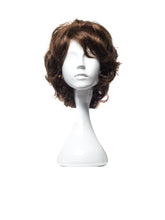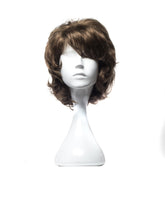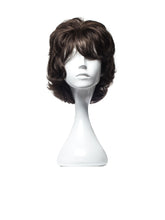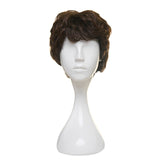Recommendations for preventing the spread of the new coronavirus
Protect yourself, avoid direct contact!
-
-
Avoid crowded areas where you are exposed to direct contact and/or interaction with a large number of people, such as public gatherings, queues, busy traffic areas, recreation zones.
-
Keep children away from playgrounds that involve touching common surfaces/objects by a large number of children.
-
Limit to the maximum any direct contact with other people outside your immediate family, through gestures such as handshakes, hugs, cheek or hand kisses, touching faces with hands.
-
It is recommended, including regarding the people you live with, to NOT have direct contact except after hand sanitization when you return home.
-
Avoid touching surfaces frequently touched by others, such as railings, door handles, knobs, elevator or access buttons.
-
If you still need to touch these surfaces, protect yourself by using disposable tissues.
-
Keep a significant distance of 1.5 meters from other people you meet. If you are on public transport, try NOT to sit face to face with other people.
-
Make sure, after using public transport, that you have sanitized your hands before touching your face, nose, or mouth.
-
Use, as much as possible, alternative routes or means of transport to avoid crowded areas with heavy pedestrian traffic. If your schedule allows, use time intervals with low pedestrian traffic.
-
In urban areas, for short distances, it is recommended to use alternative means of transportation, either by bicycle/electric scooter or walking.
-
Avoid traveling to countries facing a high number of new coronavirus (COVID-19) infection cases and discourage the return to the country of people from risk areas, namely from countries with a high number of new coronavirus cases. Real-time updated data about the targeted countries can be obtained by accessing the link (http://www.cnscbt.ro/ ), namely "The list of regions and localities in the red zone and yellow zone with COVID-19 transmission"
-
If you travel to a country exposed to the new coronavirus infection, there is a risk that upon returning to the country, depending on the update of red/yellow zones, you may need to remain in quarantine/isolation at home for 14 days, together with your family.
-
Romanian citizens returning to the country from risk areas will be required to enter self-isolation at home, which means the entire family must do the same.
-
Limit the use of banknotes and coins by opting for card/phone payments or online payments.
-
Virus transmission occurs significantly through money, which statistically comes into contact with a very large number of people.
-
Opt for working from home, as far as your employer offers this possibility.
-
There are recommendations from the Ministry of Labor, addressed to employers, for flexible working hours for employees and presentation of possible legal options available. Details here: https://bit.ly/2TGyV8d
-
Strictly follow the personal hygiene rules recommended by authorities to protect both yourself and those close to you. Use a protective mask only if you have flu or cold symptoms to protect others.
-
Wash your hands with soap and water for at least 20 seconds after any contact with a potentially contaminated surface.
-
Use paper towels, preferably, to dry your hands.
-
Do not touch your eyes, nose, or mouth with unwashed hands.
-
If you sneeze or cough, cover your mouth and nose with a disposable tissue, which you should immediately throw into the trash.
-
Frequently disinfect surfaces you come into contact with, both at home and at work, using alcohol- or chlorine-based solutions.
-
Ventilate the rooms where you carry out activities several times a day.
-
Take antiviral or antibiotic medications only with a doctor's prescription.
-
DO NOT drink liquids from the same bottle/glass as other people and do not use the same cutlery.
-
DO NOT have direct contact with people in home self-isolation, regardless of whether they show specific coronavirus symptoms or not.
-
The protective mask/surgical mask protects those around you if you have flu or cold symptoms, as it prevents the spread of the virus through respiratory droplets.
-
The protective mask must completely cover the nose and mouth of the person wearing it.
-
Keep in mind that not all cases of infection with the new coronavirus (COVID-19) are visible through specific symptoms (cough, fever, difficulty breathing).
-
The virus can be spread even by apparently healthy people who are unaware that they are carriers of the new coronavirus.
-
Get information about the new coronavirus only from official sources!
-
You can get details by calling 0800.800.358, which is an information number, not an emergency number.
-
Only call 112 in emergencies!
Protect your loved ones, do not expose them!
-
Avoid, as a priority, exposing elderly people (over 65 years) and those with weakened immunity/associated diseases to other people with flu or cold symptoms, in crowded areas or places with heavy foot traffic.
-
According to statistics, the most vulnerable people in case of infection with the new coronavirus are the elderly with multiple associated conditions (e.g., diabetes, chronic lung diseases, cardiovascular diseases, cancer).
-
In Italy, until March 9, more than half of the infection cases were recorded in people over 65 years old, and approximately 90% of deaths occurred in patients over 70 years old.
-
No deaths have been recorded in patients under 40 years old and only one death between 40 and 50 years old.
-
Among young people and children (0-18 years), the lowest infection rate with the new coronavirus was recorded, namely 1.4%.
-
Report to the authorities any case you know that may have come into contact with a person confirmed with the new coronavirus or has come from an affected country (red or yellow zone) and is not in isolation.
-
Adopt a preventive attitude towards any case, as the virus can also spread from people who do not show specific symptoms.
-
Immediately inform your family doctor if you have traveled to areas affected by coronavirus (COVID-19), even if at that time they were NOT on the list of alert zones. Details can be obtained by accessing the link (http://www.cnscbt.ro/ ), namely the “List of regions and localities in the red and yellow zones with COVID-19 transmission,” updated periodically.
-
If you cannot contact your family doctor, call the Public Health Directorate in your county and, as a last resort, 112.
-
Stay home if you have flu or cold symptoms (cough, fever, difficulty breathing) and call your family doctor for advice, DO NOT go immediately to emergency units.
-
There is a risk, if you are a carrier of the virus, to transmit the new coronavirus to other people.
-
It is preferable to stay at home, and transfer to the hospital should be organized, respecting all isolation measures.
-
If you are in home self-isolation, strictly follow the authorities' recommendations, DO NOT leave your home under any circumstances during the 14-day period, DO NOT receive visitors, and DO NOT have close contact with any persons who provide you with food or products.
-
If you violate the home self-isolation regime, you risk a fine of up to 20,000 lei, as well as a criminal case if you contribute to the spread of the virus.
-
Source: Ministry of Health


















